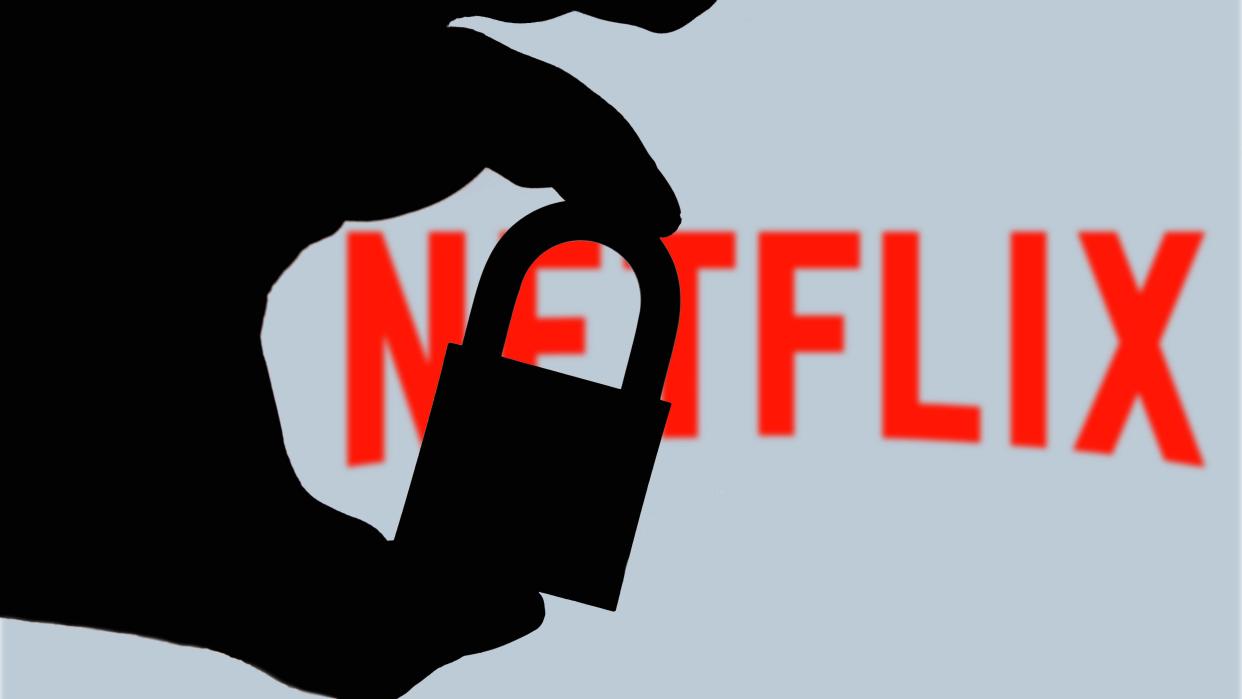The Netflix password crackdown has been as effective as I feared – and the worst is yet to come

Hate to say I told you so, but the unalloyed success of Netflix's password-sharing crackdown is surely the beginning of changes across all our subscription accounts.
If you've been sharing accounts with friends and family for anything from Amazon to Hulu and maybe even The New York Times, expect all of them to start tracking and blocking logins that are not from members of your paying account family or from your location.
I'm so certain of this that I convinced myself the other evening that the global, cross-category crackdown was already underway.
After a long day at work I settled in for a relaxing evening of streaming, but before we could begin my wife informed me that we'd been logged out of Hulu. No big deal, I thought – I figured we'd just log back in, using with my mother-in-law's premium account.
The iceberg I predicted is now here, and our content-consumption ship is plowing into it.
My mother-in-law does not live with us – she's hundreds of miles away upstate – and a cold chill traced my spine as I realized that we might not be able to log in again. "Had Hulu also enacted a password-sharing crackdown?" I wondered. I knew we hadn't covered such news on TechRadar, but what if we missed the press release? Maybe Hulu was testing the feature.
As it was, we signed back in with no problem but as I reminded my wife, it's likely that we won't be able to do this indefinitely. There is simply no way that Hulu and other subscription platforms can ignore Netflix's results.
Netflix made those results crystal clear in its latest earning report, which pointed to a 6% subscriber growth that was driven, in part, by is password-sharing crackdown. The growth, though, is mostly due to the other part of that program: a new account-sharing program, which is really a new Netflix-approved, paid way to share accounts.
I knew it would be bad
Back in March, I called Netflix then still in-beta plans the tip of a very expensive iceberg. Proof that people will pay when forced to is all the evidence that other streamers and subscription services needed.
I fully expect more subscription-based services to employ similar location-based restrictions that will identify people logging in from outside the household IP address. My days of using my mother-in-law's Hulu account are surely numbered.
The only X-factor here is whether the – for now – US-based actor and writers strikes might impact streaming content libraries. If the next 12 months see a decline in the number of fresh series and movies across all the major platforms, Amazon Prime Video, Hulu, Paramount Plus, Peacock, and Max might pause the plans I assume they're cooking up. It'll be harder to convince people that they should pay for a service when there's nothing new to watch.
The inevitability of it all
The strikes won't last forever, and, as I noted, it's not just streaming services – any online content provider that lives behind a paywall will not only encourage broader use of pricier family plans, but stricter crackdowns on anyone signing into, say, Bloomberg News and Wall Street Journal from outside the home.
The iceberg I predicted is now here, and our content-consumption ship is plowing into it. The costs of what we consume are going up, and if you weren't paying before because you shared an account, you will be soon.
It's gonna happen for me – and I realize now that the full accounting for all the services we have, and how much we pay a month, is about to begin. Something has to give – and if we want to keep watching the range of movies and shows we've become accustomed to, including the best Netflix shows, it's going to be my bank account.

